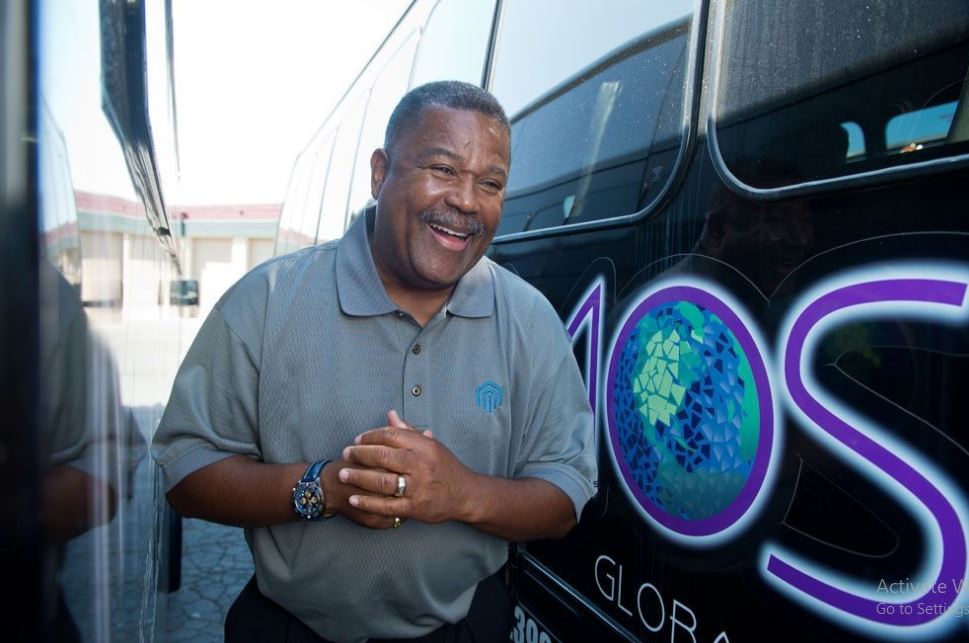For 18 years, my business Silicon Valley-based Mosaic Global Transportation was cruising in every sense of the word. With the tech sector booming, our mix of private shuttle buses for tech workers, international ground transportation and white-glove limousine service kept a fleet of 1,500 vehicles in our worldwide network, staffed by 114 employees on the road in four countries. By 2005, I had become a multimillion-dollar, Black-owned business—a unicorn of a different kind, but a unicorn nevertheless.

My wife Rhonda and I run the business together. We’ve put our five kids through school, taken family trips and invested for our future based on every careful move we’ve made and mile we’ve driven our clients.
Then came March.
We were able to build the business by capitalizing on niche transportation trends fueled by Bay Area gridlock and the booming tech industry. We were not, and never have been, a collection of self-appointed drivers, finding their way around via blaring GPS systems. We differentiated ourselves from taxis, airport shuttles and ride-sharing services by the deep vetting and training of our drivers, taking a consultative approach, scrupulous maintenance of our vehicles and delivering a high end customer service attitude. Because of those attributes, in 2016, Mosaic Global Transportation was the official ground transportation of Super Bowl 50.
Events, meetings and conventions all got called off. March 16 proved to be the pivotal day. There were 37 events scheduled in San Francisco. Every single one was canceled. Mosaic Global went from having hundreds of bookings to zero overnight. I still feel the shock of it.
“Pivot” became the word everyone tossed around, but that’s not something a longstanding business can do in a day. Like millions of other small business owners around the country, I started cutting costs, reducing staff, furloughing drivers and deferring vehicle loans and insurance.
We cut everything that wasn’t an absolute necessity. We applied for the Paycheck Protection Program loan. It gave us a cushion, but what I really needed was a new revenue stream. If I couldn’t move people around, I had to find new ways of generating income.
One of our clients needed to move packages, so in an instant, we started delivering packages. That move helped my business stay strong and kept our employees engaged and on the payroll. I quickly established a relationship with FEMA, which offered assistance to the essential workers, doctors, nurses and staff who had to work double shifts.
This isn’t the first time I’ve had to revamp my business to stay competitive. When Uber and Lyft debuted nearly 10 years ago, the streets were filled with a seemingly unending supply of cars ready to take people anywhere. However, it became clear that these ride-sharing services discriminate against minorities and women. Those are issues I strive to combat.
But I also knew I needed to up my tech game. The convenience of ride-sharing apps was a shiny new thing, irresistible to car-free, tech-savvy millennials. So we developed our own app that allowed meeting planners to see where their staff and attendees are across any device and gave Uber-like app capabilities that allow individual users to book, pay for and track their trips.
Along the way, plenty of banks and investors turned us down. We looked for banking elsewhere. Luckily, we found Accion Opportunity Fund — a nonprofit lender that specializes in backing women, immigrant and minority-owned businesses. They’ve been a great source of funding and support as we’ve grown and evolved.
Each of these pivots helped us meet moments of change. But this moment requires a whole new way of thinking. A few apps and gleaming cars won’t cut it. Delivering packages will keep us strong for now, but it’s nowhere close to getting us back to some degree of normalcy.
Because let’s be real: The transportation segment won’t be coming back until people feel comfortable traveling. And people won’t feel comfortable traveling until the virus is in the rear-view mirror. In our industry, we don’t see that happening until the third quarter of 2021.
Even then, tackling the virus’ spread doesn’t necessarily mean a return to normalcy. A spring or summer recovery could reveal longer-term, industry-flattening trends, such as workers who don’t want to go back to long commutes or conferences held entirely over Zoom rather than having attendees fly in.
We’re planning on a future with these scenarios in mind. Safety remains our number one priority. We have fully embraced the employee commuter model, while signing multiple agreements, including a multi-million dollar deal with a major tech firm, a contract with a rail company and an eight-year agreement with UC Berkeley to be one of their official transportation companies. People will travel for work. And when executives travel, companies are going to be taking greater care when selecting trusted partners to transport their employees.
Until this pandemic is contained, what can we do to survive and even take advantage of the opportunities that arise? And I say “we” not “I.” Because it may be the catchphrase of the moment, but we are all in this together.
We should do things just like this: share our experiences and ideas. Support and learn from each other. Mosaic Global Transportation is a proud minority-owned business that cares deeply about giving back to the communities. In 2011, I founded Minority Limousine Operators of America to do just that for my fellow minority-owned limousine operators.
So let’s keep the conversation going, so we can keep our communities and businesses going strong
